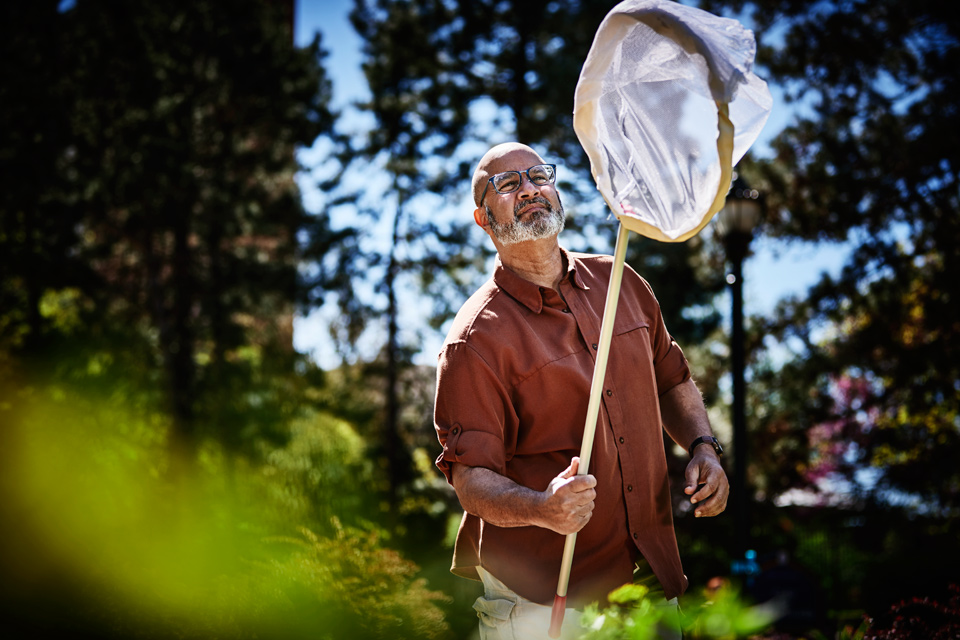SLU Scientist Collaborating with UMSL-led Team to Study Pollination in Urban Orchards
Gerardo Camilo, Ph.D., a professor of biology at Saint Louis University, is part of a team of researchers from UMSL, the Saint Louis Zoo, Webster University, Maryville University, and the Missouri Botanical Garden.
A team of researchers from six institutions across the St. Louis region will spend the next three years studying ways to maximize pollination in urban and suburban orchards with a new $633,000 grant from the U.S. Department of Agriculture’s National Institute of Food and Agriculture.
The project will be led by Aimee Dunlap, an associate professor in the Department of Biology at the University of Missouri–St. Louis, who specializes in urban ecology and bee behavior.
She will be collaborating with Gerardo Camilo, Ph.D, a professor of biology at Saint Louis University; Nathan Muchhala, an associate professor at UMSL; Ed Spevak, curator of invertebrates at the Saint Louis Zoo and director of the Saint Louis Zoo WildCare Institute Center for Native Pollinator Conservation; Nicole Miller-Struttmann, the Laurance L. Browning Jr. endowed assistant professor of biology at Webster University; Kyra Krakos, the coordinator of Sustainability & Environmental Stewardship and associate professor of biology at Maryville University; and Peter Hoch, curator emeritus at the Missouri Botanical Garden.
They’ll be working with Seed St. Louis to identify orchards for their research, and they plan to involve students from all four universities.
“We’re a mix of bee people and botanists, and we’re really excited to be able to all work together on this project,” Dunlap said in a statement. “We’re going to have some busy springs collecting a ton of data, but that’s going to be fun.”
There’s been significant growth of urban agriculture in recent years along with increased attention to sustainability as people look for ways to mitigate the effects of climate change as well as address issues like poor nutrition and food insecurity in underserved communities.
But while commercial farms have developed ways to produce consistent levels of fruits and vegetables year after year, the yields coming from urban orchards are often less predictable. Some years might have an abundance of crops. Other years, there is only a small amount to collect at harvest time.
One goal for the researchers is to help people increase fruit production in urban and suburban gardens and level out their production year by year, so urban farms can be consistent sources of nutritious food in the communities where they grow.
The researchers plan to test out different interventions, such as introducing different types of bees, including blue orchard mason bees, and nesting habitats such as brambles of blackberry stems into different gardens, to see how they promote pollination. They expect to learn lessons about bee behavior.
Camilo will be researching which pollinators are the most efficient and consistent ones.
“There are dozens of potential candidates,” he said. “The one thing we know for sure is that honeybees are dreadfully bad pollinators when it comes to apples, plums, peaches, etc.”
The research team plans to spend time in 36 orchards, including nine – three urban, three suburban and three exurban – where they plan to focus the bulk of their research. Camilo’s lab at SLU will house the database for the geospatial data for all the orchards across the urban to rural gradient.


















